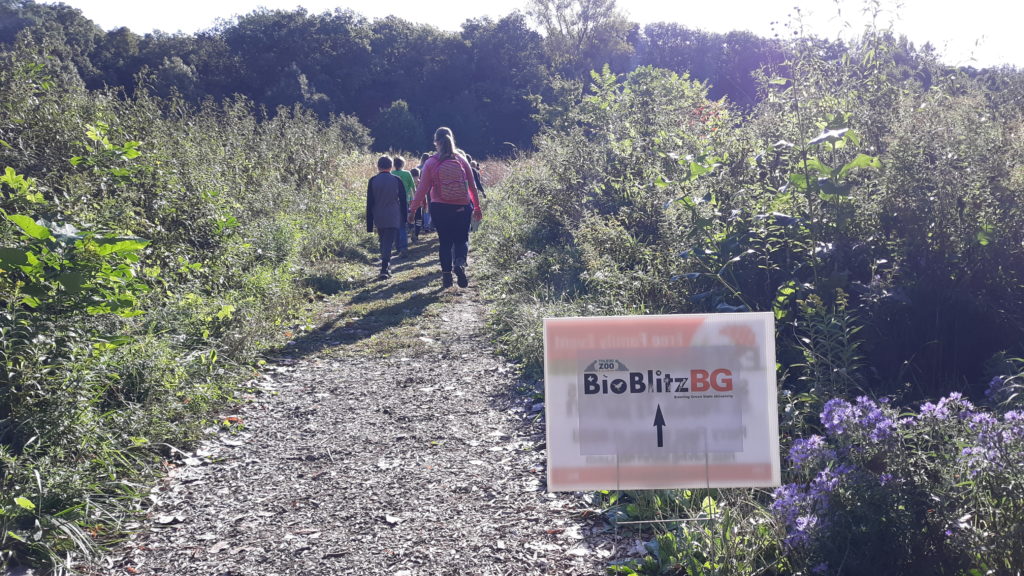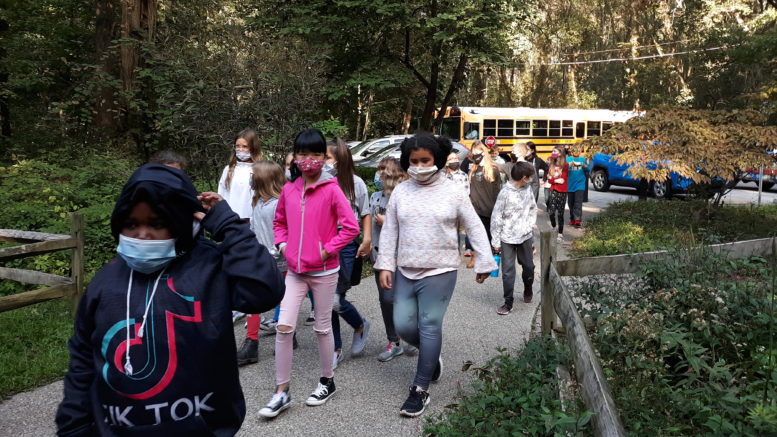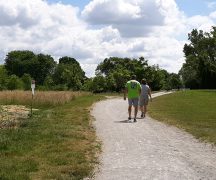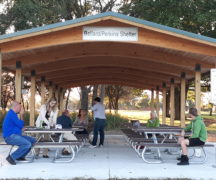By JAN LARSON McLAUGHLIN
BG Independent News
Armed with an app, bug spray and youthful curiosity, Bowling Green fifth graders became “citizen scientists” for the day Wednesday.
They roamed the trails of the Wintergarden Park prairie, finding different plant species and sending their data to scientists around the world.
In the first few minutes, they identified bushy aster, shiny sumac, common wrinkle leaf goldenrod, and poison ivy.
“Anyone can be a scientist,” Mitch Magdich, from the Toledo Zoo, told the students. “It’s not just someone in a lab with crazy hair and a nerdy pocket protector.”
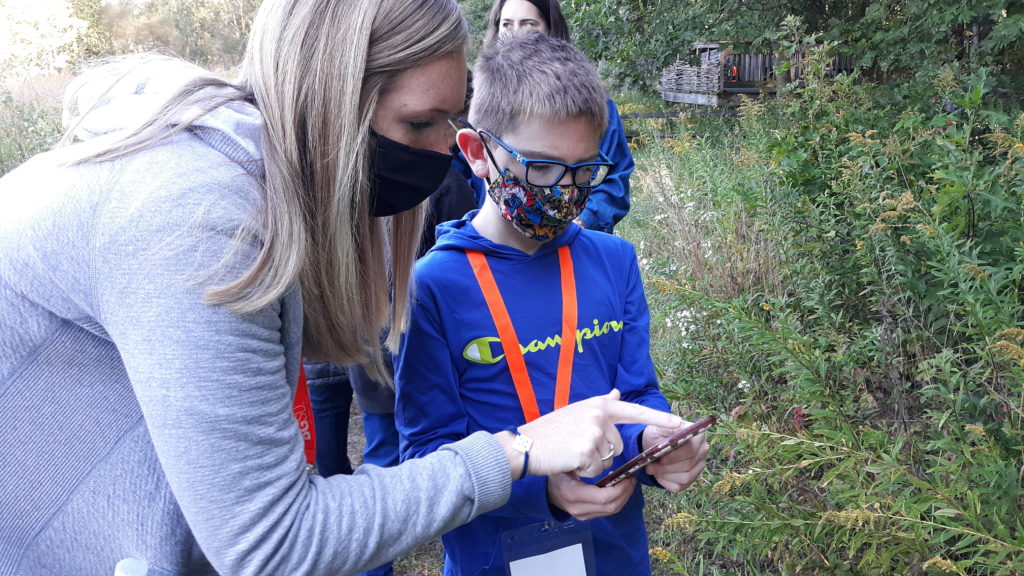
Crim fifth grader Mason Naus was inspired as he catalogued plant life in the prairie.
“I think it’s really interesting,” he said. “There’s some interesting plant life and bug life here. I think it’s cool that I get to help out scientists and maybe make some new discoveries.”
It just doesn’t get much better than that for Emilio Duran, director of the Northwest Ohio Center of Excellence in STEM Education.
The BioBlitz at Wintergarden Park was a team effort by Bowling Green Parks and Recreation, Bowling Green City Schools, BGSU Science and Environmental Education, and BGSU Early and Inclusive Childhood Education undergraduates.
The event was part of the national Parks for Pollinators campaign, which is aimed at raising public awareness about the importance of pollinators and positioning parks as national leaders in advancing pollinator health.
During the last 30 years, the U.S. has seen a steady decline of pollinators – such as bees, bats and butterflies.
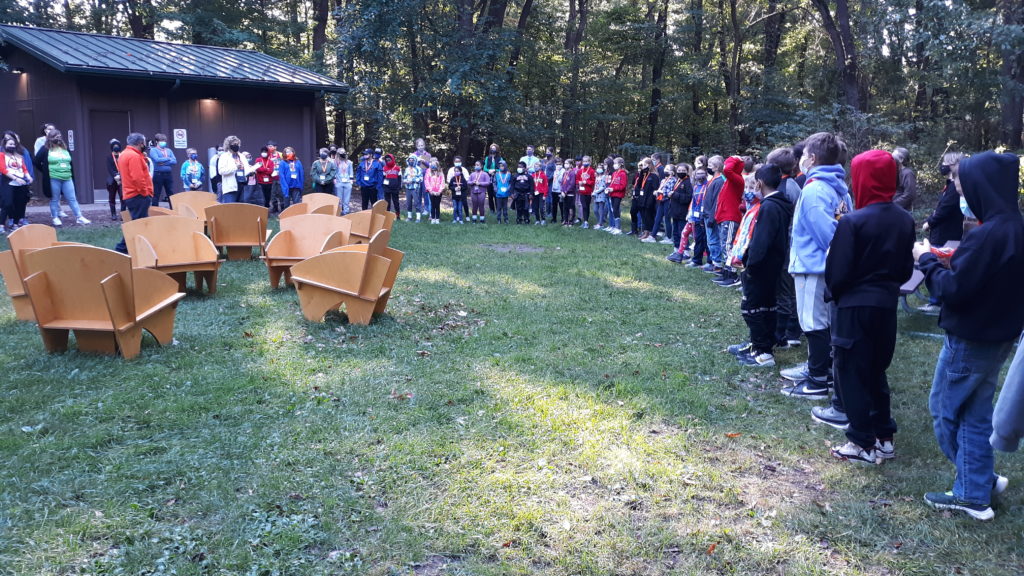
Before they set off into the prairie, the Crim Elementary fifth graders were paired up with college students studying to be future teachers. They were given a pep talk by Duran.
“You should be smiling underneath those masks,” Duran said. “You are going to be learning and having fun – what a concept.”
But Duran also stressed the importance of their roles as citizen scientists.
“Whatever you do today is going to matter,” he said. Duran talked about the impacts of climate change, such as the frequent fires in the western U.S., and the shrinking habitat for polar bears.
“It is very important what you are going to do today,” Duran said. “We’re running out of time.”
The BioBlitz is an ideal way to acquaint students with nature, Magdich said.
“We’re going to be looking at every living thing in that prairie,” he said. “And making that information available to scientists all over the world.”
Jodi Haney, professor emeritus of Science and Environmental Education at BGSU, told the students they were about to become biologists and botanists.
“Let’s get busy doing what we need to do,” Haney said.
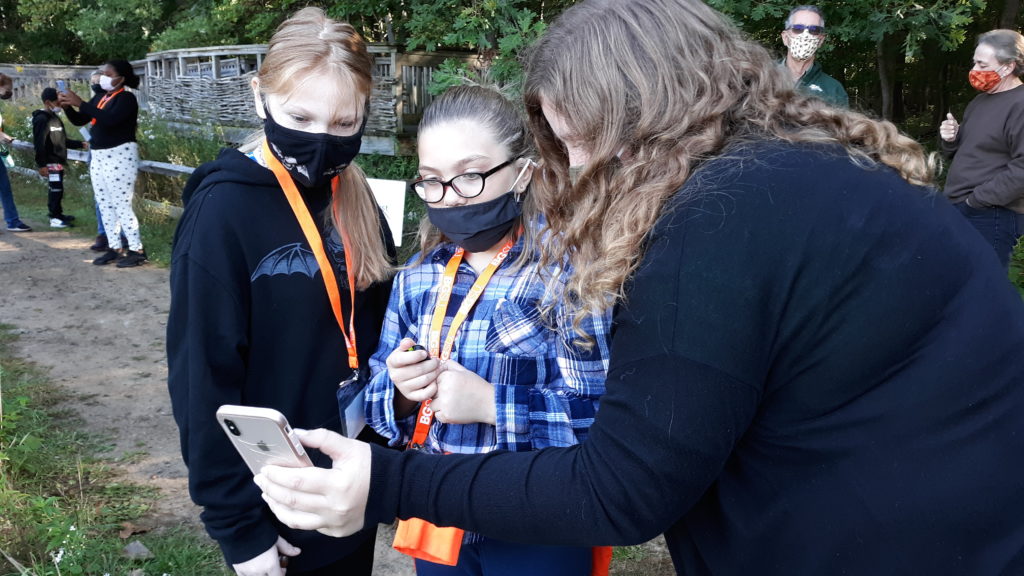
The role of citizen scientists is to gather information that can be used to correct the harm to the world caused by humans, Duran said before the students arrived.
“It’s where regular individuals are going to collect data and work with scientists all over the world,” he said. “It’s little steps to make the world better for everyone.”
Using the iNaturalist app, students identified plants and bugs. The student-collected data was then uploaded to the iNaturalist platform, a learning application used for scientific data collection and conservation.
Students also observed clouds and measured the temperature of the air, surface and soil to compare prairie habitats for the Global Learning and Observation of the Environment program. The data was uploaded to share with scientists who use GLOBE data to better monitor the earth.
And students constructed their own bee houses, out of tin cans, cardboard toilet paper tubes and straws. The houses were built to provide native bees with homes to enhance pollination in natural habitats.
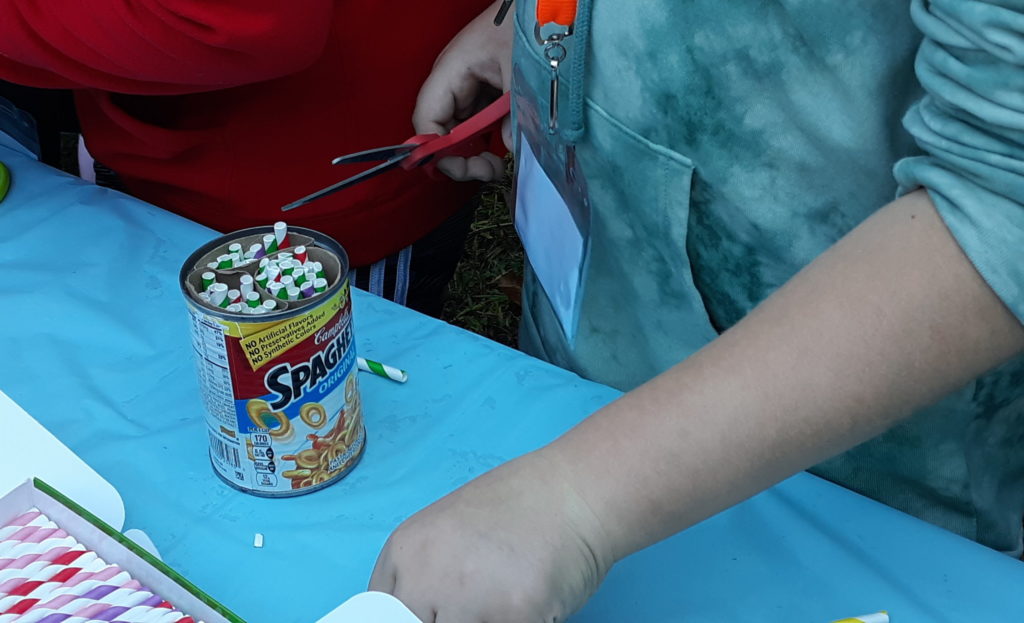
The “hands-on minds-on” approach to learning is the ideal way to get students involved, Duran said.
Fifth grader Riley Morris was busy snapping photos of plants and a mystery bug that was too quick for the camera.
“I think it’s cool, just looking at the stuff,” she said. She expressed one negative – “I don’t like mosquitoes.”
The BioBlitz was a learning experience for the elementary students and the future educators.
“We want both groups to engage with science and nature,” Haney said. “We want them to feel a little more empathy to act.”
And after more than a year of not being able to hold school programs due to COVID, hosting busloads of children at the BioBlitz was a welcome change.
“The parks are thrilled that this is happening – to have kids educated at Wintergarden again,” said BG’s Natural Resources Coordinator Chris Gajewicz.
